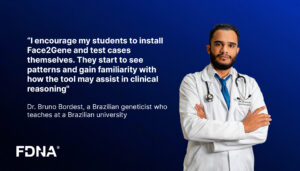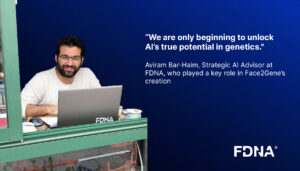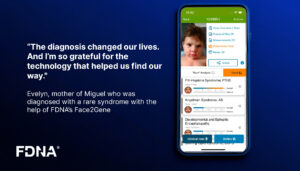May 6, 2024
THINK GLOBAL HEALTH
“In a rapidly digitizing world, our faces—wrinkles, pimples, beauty marks, and all—have transformed into one of the most valuable digital tools today. With facial recognition technology (FRT), matching images using artificial intelligence (AI) to identify a person has never been easier. But beyond this, facial recognition technology is slowly making its mark in health care, from scanning faces to control who comes in and out of health facilities to analyzing facial expressions to determine how healthy someone is.”
A physician at the University of Nebraska Medical Center (UNMC) is expanding the use of FDNA’s innovative smartphone facial recognition app, Face2Gene. This app employs advanced facial analysis technology to assist in diagnosing genetic conditions based on facial features. By capturing and analyzing images, Face2Gene identifies specific patterns and traits linked to various genetic disorders. This expansion aims to make genetic evaluations more accessible, accurate, and efficient for healthcare providers and patients alike. The app’s integration into clinical practice has the potential to enhance diagnostic capabilities and improve outcomes for individuals with rare genetic diseases.


